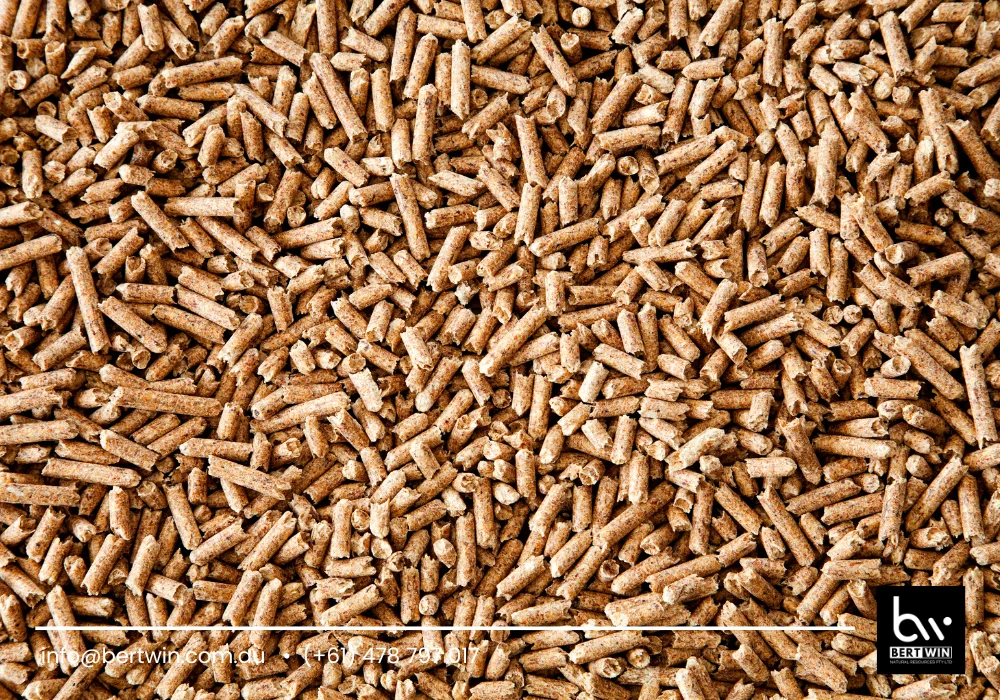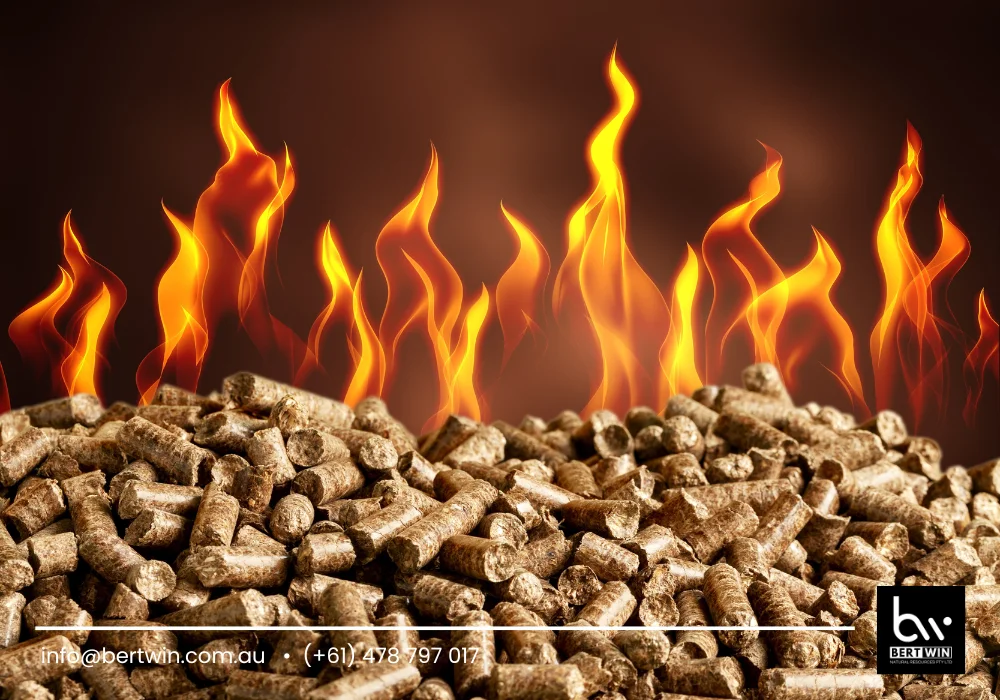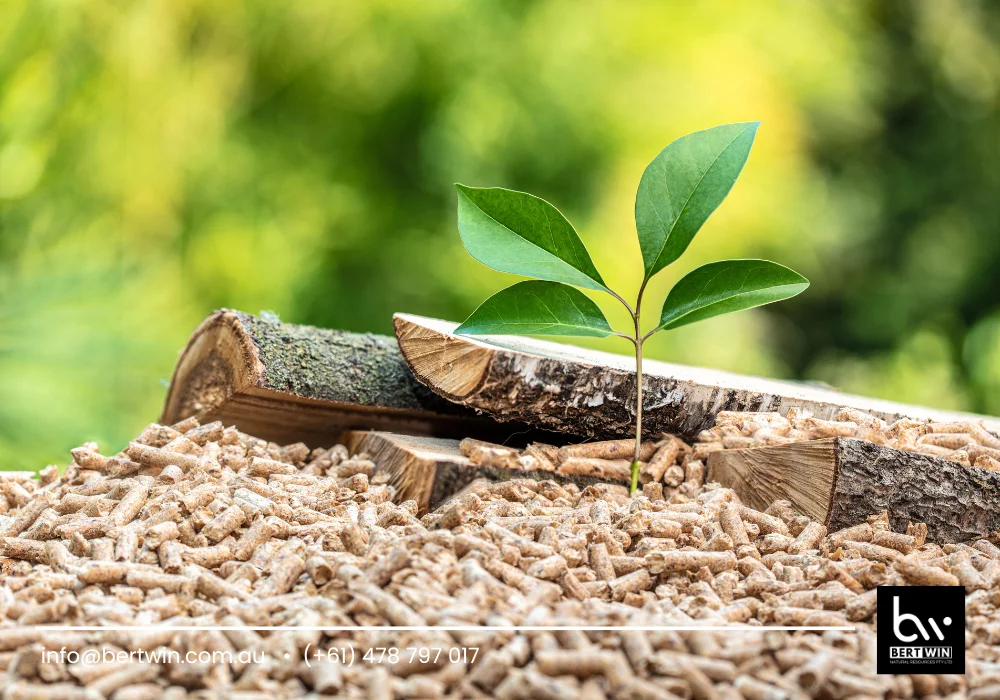Wood pellet used for numerous applications has become an essential part of many industries, particularly in energy production, heating, and even agriculture. Derived from compressed wood fibers, these pellets are compact, efficient, and environmentally friendly. In this article, we will explore wood pellet used for different purposes, including how they contribute to sustainability and what benefits they offer to various sectors.

What are Wood Pellets?
Wood pellet used for multiple applications starts with understanding what wood pellets are and how they are produced. Wood pellets are small, cylindrical pieces of compressed wood fibers, sawdust, and other wood residues. They are manufactured through a process that involves drying the wood, compressing it into pellets, and then packaging the final product. Wood pellets are typically made from renewable resources, such as wood waste, making them a more sustainable alternative to fossil fuels.
Wood pellets are most commonly used in energy production, specifically in heating and power plants. However, they also have various other applications in agriculture, animal bedding, and even consumer products, offering an environmentally friendly alternative to other materials.
Benefits of Wood Pellets
There are several benefits associated with wood pellet used for various applications, making them an attractive option for businesses and individuals looking to reduce their environmental impact. Below are some of the main advantages:
1. Renewable and Sustainable Energy Source
Wood pellets are made from biomass, which is a renewable resource. Unlike fossil fuels, which contribute to greenhouse gas emissions, wood pellets are carbon-neutral, meaning they release the same amount of CO2 that the trees absorb during their lifetime. By using wood pellets as a source of energy, businesses and households can reduce their carbon footprint and contribute to more sustainable energy practices.
2. Efficient Heating
One of the primary uses of wood pellet used for is in heating systems. Wood pellet stoves and boilers are highly efficient, providing heat with minimal emissions compared to traditional wood-burning stoves. Wood pellets have a high energy density, which means they burn hotter and longer, making them an excellent choice for residential and commercial heating. These systems are also cleaner than conventional wood-burning stoves, as they produce less ash and smoke.
3. Waste Reduction
Wood pellets are made from wood waste and residues, such as sawdust and wood chips, which would otherwise be discarded or burned. By utilizing these byproducts, the production of wood pellets helps reduce waste and provides a sustainable solution for managing wood residues. This contributes to a circular economy, where resources are used efficiently and waste is minimized.
4. Low Emissions
When burned, wood pellets produce lower emissions compared to traditional fossil fuels like coal and oil. They emit significantly less particulate matter and sulfur, making them a cleaner source of energy. Additionally, wood pellets have a lower moisture content, which means they burn more efficiently, reducing the overall impact on the environment.

Common Uses of Wood Pellets
Now that we understand the benefits of wood pellet used for various applications, let’s explore some of the most common uses of wood pellets:
1. Heating and Energy Production
The most common use of wood pellets is as a source of heat and energy. Wood pellet stoves, boilers, and furnaces are popular in both residential and commercial settings. These systems provide a clean and efficient way to heat homes, offices, and industrial facilities. Wood pellets can also be used in large-scale power plants to generate electricity. The energy produced from wood pellets is considered carbon-neutral, as it releases a minimal amount of CO2 into the atmosphere compared to fossil fuels.
2. Animal Bedding
Wood pellets are also widely used for animal bedding in farms, stables, and pet homes. When used as bedding, wood pellets absorb moisture and odors, keeping the living area dry and comfortable for animals. Once the bedding becomes soiled, it can be composted or used as fertilizer, making it an eco-friendly alternative to traditional bedding materials like straw or hay.
Wood pellet bedding is particularly popular for poultry, horses, and small animals like rabbits and guinea pigs. It provides a clean, dry, and comfortable environment for animals while minimizing waste and reducing odor.
3. Agriculture and Fertilizer
Wood pellets can also be used in agriculture as a soil amendment or fertilizer. When broken down, wood pellets release nutrients into the soil, which can help improve soil structure and promote healthy plant growth. In addition to their nutrient content, wood pellets also help retain moisture in the soil, reducing the need for frequent irrigation. This makes them an ideal option for sustainable farming practices, especially in areas where water conservation is essential.
4. Water Filtration
Another innovative use of wood pellet used for is in water filtration systems. Due to their high surface area and absorption capacity, wood pellets can be used to remove impurities from water. When used in water filters, wood pellets help remove chlorine, heavy metals, and organic compounds, making the water safer for consumption. This use of wood pellets is particularly common in small-scale water filtration systems, such as those used in households or farms.
5. Consumer Products
Wood pellets are sometimes used in the production of consumer goods, such as biodegradable packaging, furniture, and other eco-friendly products. Their lightweight, durable, and sustainable nature makes them an attractive material for companies looking to reduce their environmental impact. Additionally, wood pellets are used in the production of charcoal alternatives, which are becoming more popular as an eco-conscious choice for grilling and barbecuing.

Conclusion
Wood pellet used for various applications is an excellent way to contribute to sustainability and reduce environmental impact. From heating and energy production to agriculture and consumer products, wood pellets offer a renewable, efficient, and eco-friendly alternative to traditional materials. By utilizing wood pellets, individuals and businesses can take advantage of a cleaner, more sustainable energy source while reducing waste and emissions.
For further information on wood pellet used for or to purchase high-quality wood pellets, feel free to contact WhatsApp at (+61) 478797017 or via email at info@bertwin.com.au. We are here to assist with all your wood pellet needs.
Read Also : Fertilizer Coir Mat for Plants: Boost Soil & Plant Health
